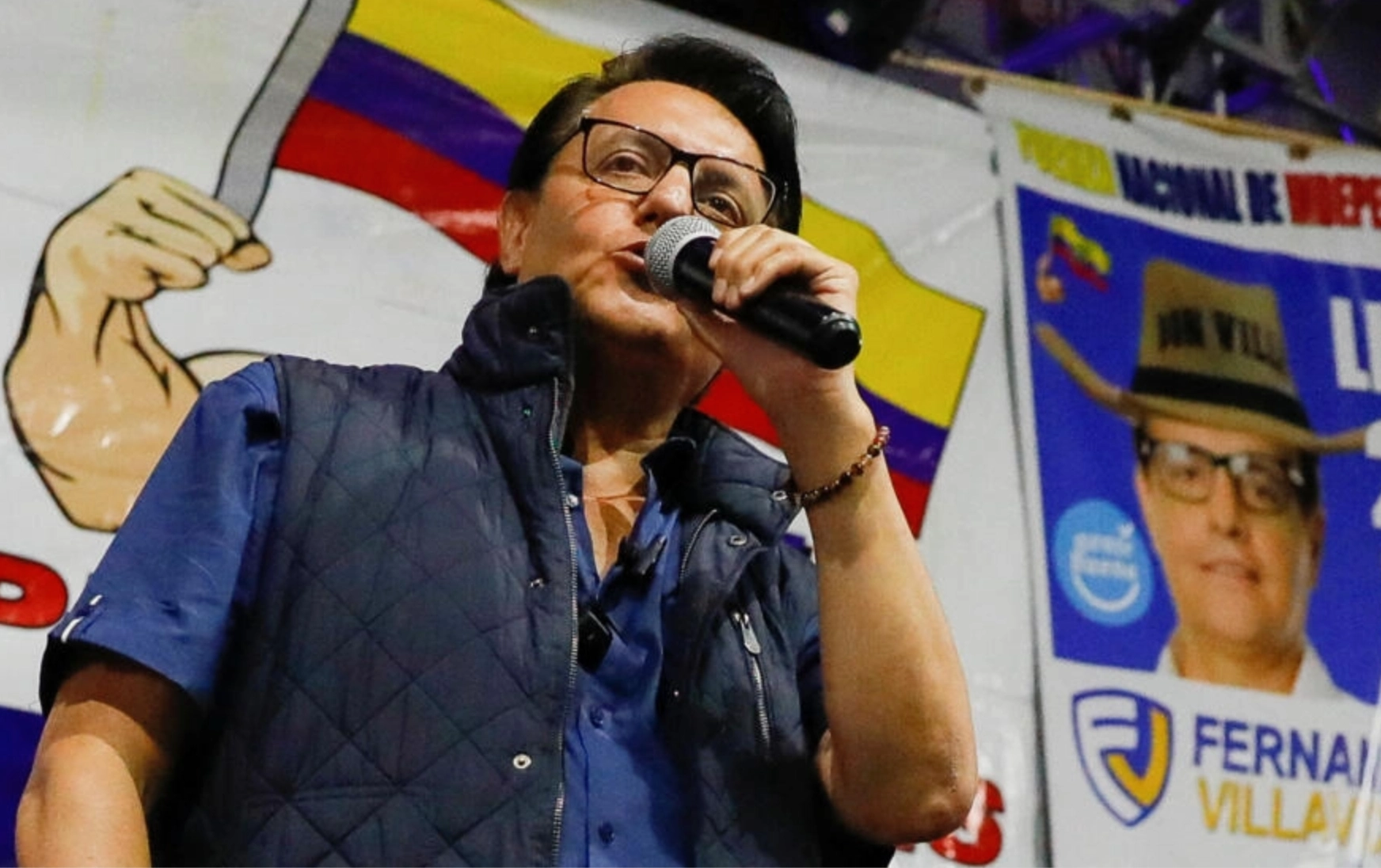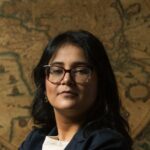Yesterday, days before the elections, during a rally at the Anderson School in Quito, Fernando Villavicencio, candidate for the presidency of Ecuador, was shot and killed. President Guillermo Lasso declared a state of emergency for 60 days throughout the country. The first assassination of a presidential candidate in the country’s history is an attack against democracy and highlights the deep crisis and the unprecedented wave of political violence in Ecuador. This act, preceded by threats and an attack by criminal groups, reflects the growing challenge of transnational organized crime for Latin American countries and marks a turning point for the future of Ecuador.
Villavicencio was a journalist, former assemblyman, and presidential candidate for the Construye Movement. In an electoral context marked by indecision, the former candidate would reach second, third, or fourth place, depending on the poll. He was a staunch opponent of the government of Rafael Correa. During his administration, Villavencio denounced alleged corruption cases and was sentenced to 18 months in prison in 2014. He did not serve the sentence because he went into hiding in the Amazon jungle.
In 2016, a judge ordered his imprisonment for the disclosure of reserved information. On that occasion he took refuge in Lima and in 2017 he returned to the country during the government of Lenín Moreno (2017-2021). Since then, Villavicencio maintained an active political profile and had police protection, denouncing recently the actions of organized crime. Villavicencio was also a close collaborator of Guillermo Lasso’s government. His murder has shocked the country, and this year alone four local politicians of different tendencies have been assassinated.
Once considered an island of peace, Ecuador went from being a transit territory to a storage, processing, and distribution center for drugs in Latin America. Faced with threats from organized crime and those seeking authoritarian solutions, the country has reached a point where it is urgent to prioritize and defend democracy, peace, and citizen security over political differences.
August 20 will be a turning point for several reasons. First, presidential and legislative elections will be held. These are mid-term elections, called by President Guillermo Lasso, following the dissolution of the opposition-majority National Assembly. Such a decision took place in the midst of an impeachment trial initiated against him for accusations of corruption and embezzlement of public funds.
The investigation, called “Gran Padrino“, revealed an alleged network of influence peddling within public companies, involving people close to the president such as his brother-in-law Danilo Carrera, as well as the illicit financing of his presidential campaign. The Ecuadorian president has repeatedly denied these accusations and, according to organizations such as Reporters Without Borders, has tried to censor the journalistic work of the whistleblowers, describing them as “media terrorists”.
The extreme violence affecting Ecuador, the threats and the hostile climate that has been established against journalism led to the recent departure from the country of Andersson Boscán and Mónica Velásquez, journalists of La Posta, as well as the exile of journalists Karol Noroña and Lissette Ormaza.
Ecuador’s current problems are the result of structural factors and the inaction of the current administration, which lacks a real security strategy and has contributed to the worsening of the situation through a process of progressive democratic erosion and policies of economic adjustment and austerity.
In the midst of this scenario, undecided voters exceed 50% in the next elections, but several polls affirm that Luisa Gonzalez (candidate for the Revolución Ciudana Movement), leads the voting intention and even has a possibility of winning in the first round. The results differ in the following positions, but most of them place as possible rivals in the second round Otto Sonnenholzner (Actuemos), Yaku Pérez (Alianza Claro que se Puede) and Jan Topic (Por un país sin Miedo) in decreasing order.
On August 20, Ecuador will also hold a historic referendum that could put an end to six decades of oil extractivism in the ITT Block, located in the center of the Yasuní National Park. This park, created in 1979 and declared a Biosphere Reserve by UNESCO, is considered one of the most biodiverse places on the planet and a refuge for the Tagaeri and Taromenane, the last indigenous groups in voluntary isolation in the country. The centrality of this consultation lies in the possibility of starting to build an alternative model to extractivism that seeks to guarantee sustainable well-being centered on the interests of the majority. It is also a way to preserve a region of strategic importance for the world, and a concrete contribution against climate change that would place the country at the forefront of the preservation and defense of the environment.
Ecuador is today a mortally wounded country that requires an urgent project of unity, peace, and national reconstruction. In this context, it is essential to avoid the instrumentalization of assassinations such as that of Fernando Villavicencio and to prevent the criminalization of any political movement. In the face of threats from organized crime and destabilizing forces, the best antidote is a national consensus and the correct development of the planned elections, with the observation and support of the international community.
Although it will be a transitional government, the next president of the country will have a Herculean task in which rebuilding Ecuador and guaranteeing democracy, citizen security and social justice must be the priority. Along with these objectives, the Yasuní consultation also offers a historic opportunity to begin to put an end to extractivism and implement environmental and climate justice actions for the benefit of all.
*Translated from Spanish by Janaína Ruviaro da Silva












